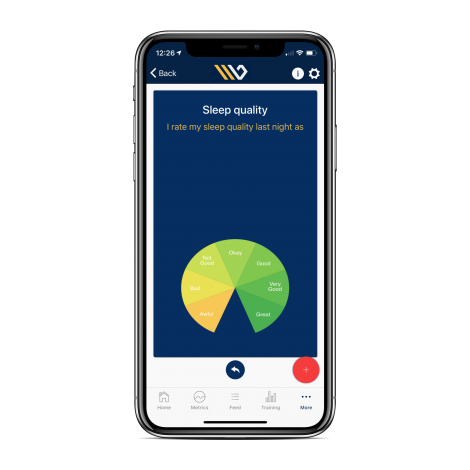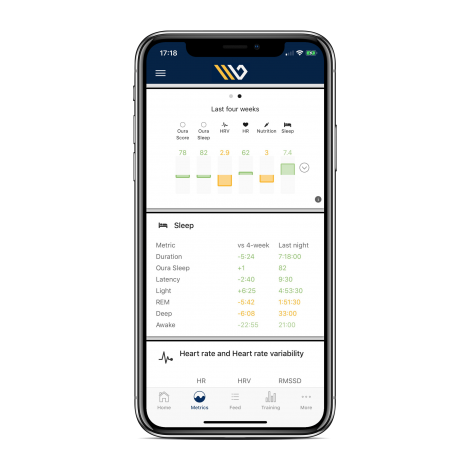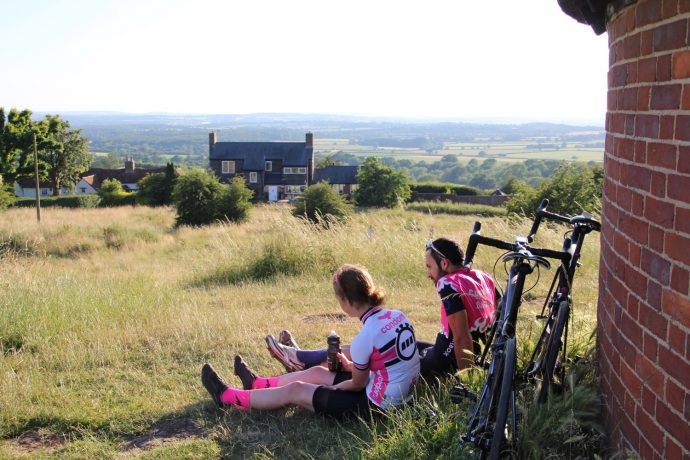In summary:
• One or more bad night’s sleep – exercise at reduced intensity/volume
• All-nighter – only exercise if you work out regularly, and keep to Zone 1
• Hungover/jet lagged – beneficial to exercise at moderate intensity
Should I exercise after one bad night’s sleep? (under 6 hours)
Even one night of poor sleep increases injury risk. Scientists at Manouba University found that there was a significant increase in biomarkers of inflammation and muscular damage following exercise in a group of Taekwondo athletes that only slept for 3.5 hours the night before, compared to a group that slept for 7 hours.
You can still exercise, but do so with a different purpose. Keep it light and short – this is not the time to maximise training response, but to maintain the habit of exercise, clear the mind, boost mood, and contribute to a better sleep the following night.
Keep it light and short – this is not the time to maximise training response, but to maintain the habit of exercise, clear the mind, boost mood, and contribute to a better sleep the following night.
Sleep loss the night before a race is very common and not massively detrimental to performance. The taper that tends to accompany race build-up reduces the demand for physical recovery, whilst race adrenaline counteracts your feeling of tiredness.
Should I exercise after an all-nighter? (less than 1 hour)
The impact of total sleep deprivation on exercise depends on your level of fitness. In one particular study, total sleep deprivation was less detrimental to cardiovascular health among fitter individuals. This finding suggests that you should only perform exercise following zero sleep if it’s well within your capacity. If not, rest up, get a good night’s sleep, and be ready to go the next day.
You should only perform exercise following zero sleep if it’s well within your capacity. If not, rest up, get a good night’s sleep, and be ready to go the next day.
Should I exercise during extended periods of sleep loss?
Injury risk in adolescents is almost doubled among those who do not get 8 hours of sleep per night due to impaired reaction times and cognitive functioning. Sleep deprivation also decreases peak and sustained muscle strength. In terms of physical performance, time to physical exhaustion drops by 10-30%, aerobic output is significantly reduced, and there are marked impairments in cardiovascular, metabolic and respiratory capabilities, including faster rates of lactic build up. Further, pain tolerance is reduced by up to 10%. These studies highlight the impact chronic sleep loss will have on your performance and training response.
During extended periods of short to medium sleep loss (e.g. a few weeks or months due to travel, work, etc), the injury and over-training risks should be accounted for. You should aim to maintain rather than increase your fitness by completing lower intensity activities.
You should aim to maintain rather than increase your fitness by completing lower intensity activities.
As a long term solution to chronic sleep loss, perhaps consider these realistic ways of improving your sleep.
Should I exercise when hungover?
Hangovers involve dehydration and reduced endorphin levels. Meanwhile, just 15 minutes of exercise at 70% effort increases endorphin levels. Drink plenty of water, then go ahead with low to moderate intensity exercise (70% effort but not much more).
Should I exercise when jet lagged?
Exercise can help to reduce jet lag. If you exercise at the same time most days, continue to do so in the new time zone to help reset your internal sleep cycle (if you run at 7am Eastern-time in New York, run at 7am UK-time in London). Exercise will also improve the length and quality of your sleep and reduce the irritability that comes with fatigue.
Improve your sleep with Wattson Blue
You can use Wattson Blue to track your sleep quality and duration every morning, allowing you to reflect on the quality of your recovery from the day before. You can also sync your sleep from devices such as Oura ring and Apple Health. Over time, you can see how sleep affects your personal performance, mood and other metrics such as heart rate variability (chronic sleep deprivation has been found to reduce HRV), helping you to adjust your training and improve outcomes.
To download Wattson Blue click here from your iPhone or here from your android device.




